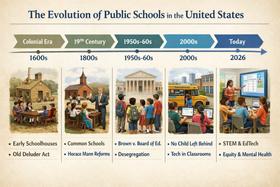Top Rankings
Burris Laboratory School District ranks among the top 20% of public school district in Indiana for:
Category
Attribute
Overall Rank
Highest overall rank (Top 10%)
Math Proficiency
Highest math proficiency (Top 20%)
Reading/Language Arts Proficiency
Highest reading/language arts proficiency (Top 10%)
Science Proficiency
Highest science proficiency (Top 5%)
Student Attention
Lowest student-teacher ratio (Top 1%)
For the 2026 school year, there is 1 public school serving 668 students in Burris Laboratory School District. This district's average testing ranking is 10/10, which is in the top 10% of public schools in Indiana.
Public School in Burris Laboratory School District have an average math proficiency score of 52% (versus the Indiana public school average of 39%), and reading proficiency score of 57% (versus the 41% statewide average).
Minority enrollment is 26% of the student body (majority Black and Hispanic), which is less than the Indiana public school average of 37% (majority Hispanic and Black).
Overview
This School District
This State (IN)
# Schools
1 School
1,903 Schools
# Students
668 Students
1,032,759 Students
# Teachers
52 Teachers
67,365 Teachers
Student-Teacher Ratio
13:1
13:1
Student By Grade
District Rank
Burris Laboratory School District, which is ranked within the top 10% of all 389 school districts in Indiana (based off of combined math and reading proficiency testing data) for the 2022-2023 school year.
The school district's graduation rate of 90% has stayed relatively flat over five school years.
Overall District Rank
#37 out of 395 school districts
(Top 10%)
(Top 10%)
Math Test Scores (% Proficient)
52%
39%
Reading/Language Arts Test Scores (% Proficient)
57%
41%
Science Test Scores (% Proficient)
60-64%
34%
Graduation Rate
(21-22)≥90%
88%
Students by Ethnicity:
Diversity Score
0.43
0.57
% American Indian
1%
n/a
% Asian
3%
3%
% Hispanic
5%
15%
% Black
8%
13%
% White
75%
63%
% Hawaiian
n/a
n/a
% Two or more races
8%
6%
All Ethnic Groups
District Revenue and Spending
The revenue/student of $10,972 in this school district is less than the state median of $13,183. The school district revenue/student has stayed relatively flat over four school years.
The school district's spending/student of $10,031 is less than the state median of $12,814. The school district spending/student has grown by 5% over four school years.
Total Revenue
$7 MM
$13,615 MM
Spending
$7 MM
$13,234 MM
Revenue / Student
$10,972
$13,183
Spending / Student
$10,031
$12,814
Best Burris Laboratory School District Public Schools (2026)
School
(Math and Reading Proficiency)
(Math and Reading Proficiency)
Location
Quick Facts
Rank: #11.
Burris Laboratory School
(Math: 52% | Reading: 57%)
Rank:
Rank:
9/
Top 20%10
2000 University Ave
Muncie, IN 47306
(765) 285-8600
Muncie, IN 47306
(765) 285-8600
Gr: K-12 | 668 students Student-teacher ratio: 13:1 Minority enrollment: 25%
Frequently Asked Questions
How many schools belong to Burris Laboratory School District?
Burris Laboratory School District manages 1 public schools serving 668 students.
What is the rank of Burris Laboratory School District?
Burris Laboratory School District is ranked #37 out of 389 school districts in Indiana (top 10%) based off of combined math and reading proficiency testing data for the 2022-2023 school year. This district ranks in the top 20% of Indiana school districts for: Highest overall rank (Top 10%), Highest math proficiency (Top 20%), Highest reading/language arts proficiency (Top 10%), Highest science proficiency (Top 5%) and Lowest student-teacher ratio (Top 1%)
What is the racial composition of students in Burris Laboratory School District?
75% of Burris Laboratory School District students are White, 8% of students are Black, 8% of students are Two or more races, 5% of students are Hispanic, 3% of students are Asian, and 1% of students are American Indian.
What is the student/teacher ratio of Burris Laboratory School District?
Burris Laboratory School District has a student/teacher ratio of 13:1, which is lower than the Indiana state average of 15:1.
What is Burris Laboratory School District's spending/student ratio?
The school district's spending/student of $10,031 is less than the state median of $12,814. The school district spending/student has grown by 5% over four school years.
Recent Articles

Do We Still Need Libraries in Public Schools in 2026
An updated look at the role of public school libraries in 2026, their impact on literacy, equity, and digital learning, and why they remain essential today.

The History of Public Schools in the United States
Explore the history of public schools in the U.S., from colonial roots to 2026 reforms shaping equity, funding, and classroom innovation.

Special-Program Registration Deadlines Explained
Learn what to know about special-program registration deadlines for magnet, CTE, and dual-enrollment options in public schools.





